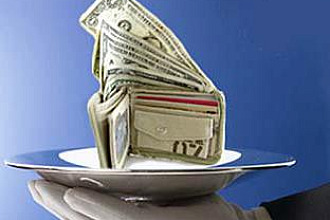Are you a procrastinator? You are not alone. In one study, 90 percent of individuals procrastinated on at least one occasion and a quarter of them chronically put things off for another day. You might have also pondered all the excuses in the world not to complete the report, the project, or the assignment today.
Are you one of those who often say, “I work best under pressure,” “There is plenty of time to finish this assignment,” or “I don’t feel like doing this report today”? Eminent artists and even geniuses in their fields have had serious problems with procrastination. Take Wolfgang Amadeus Mozart who wrote the overture for Don Giovanni the night before the opera’s debut. In fact, at its premiere the ink was still wet on the sheet music and there certainly was no time for a rehearsal. Interestingly, this brilliant and prolific composer would often create entire symphonies in his head while playing a game of billiards and would not put it down on paper until he had first completed the entire piece in his mind.
Another procrastinator was Frank Lloyd Wright who created his most famous structure in approximately two hours. The Pittsburgh department store magnate Edgar Kaufmann hired Wright to design waterfalls for his retreat property. Wright visited Kaufmann’s Pennsylvania property and expressed that he had big plans for his waterfalls. Months later, Kaufmann abruptly decided to visit Wright’s studio unannounced to see the progress on his project but Wright had not one single plan to show. Nervous apprentices watched while he casually ate his breakfast. Afterwards he drew up Fallingwater, now an icon of modern design and a national historic landmark (Reference 1).
Why Do You Procrastinate?
Most of us procrastinate in at least one area of our lives. Then there are those individuals who procrastinate in every area of their lives. Listed below are some reasons why you and I tend to wait until the last moment.
False Beliefs
Among common beliefs of procrastinators include working better under pressure or that they feel better about the project if they tackle it later in the workday, believing that time pressure enhances performance. Unfortunately, tomorrow never comes, and last-minute work too often ends up as unsatisfactory and of low quality. Fight those misguided impulses!
Fear of Failure or Success
Fear is the bottom line for procrastinators. They feel they do not have either the required skills or the natural talent. Hence, they would rather be seen as lacking in effort or time, rather than lacking in ability or talent. If you believe that success will put you in an awkward or difficult situation such as doing better than your contemporaries, looking too ambitious, or setting you up for future higher expectations, you will most likely procrastinate.
Perfectionism
Perfectionism is often the root of procrastination. The melancholic that has to do everything perfectly and fears he may fail has a tendency to do nothing rather than run the risk of a half–baked job.
Thrill-seeking
Procrastination can produce an adrenaline rush. Just watch on TV, for example, the line of individuals at the local post office minutes before midnight on April 15 to mail their tax documents (Reference 2).
Overestimating
We either overestimate how much time we need for a project or we tend to overestimate how much time we have. The first overestimate assumes it will take “from here to eternity” and rather than do something, even part of the project, we do nothing. The second overestimate just keeps us saying we have “lots of time” (Reference 3).
How to Stop Procrastinating: Write It Down
Reduce your assignment to $600 or 30 percent, and you could have it free and clear in seven years. The bottom line is, as far as possible, put off retirement until your home mortgage is retired.
Household Budget
The best method to avoid procrastinating with your home bills such as electricity, home maintenance, etc., is to start today with a dollar accounting of all your expenses. Every dollar you earn needs to have a name or label—either an expense or savings amount attached to it. Lack of a spending plan or household budget is a money-management crime against your family.
Saving for Retirement
In order to retire comfortably, one needs to save during their working career at least 15 percent from their regular paycheck. Most companies put aside for their employees about 5 percent. In addition, they will often match another 3-5 percent of what you have deducted for retirement savings. However, approximately 20-30 percent of employees do not take advantage of the matching moneys and the majority does not make it up to reach the 15 percent goal. Delaying in this area makes it tougher over time to make up the difference that ensures a sunny retirement.
Giving
The majority of congregation members fail to regularly return an honest tithe and give generously to the local congregation’s budget and overseas work. This stewardship procrastination can be turned around by “systematic giving.” As soon as you receive your paycheck, determine that your first financial responsibility is to give your tithes and offerings with a thankful heart. Whether you give using the traditional envelope or through e-giving, resolve to follow the example of the congregation members in Corinth—they established a habit to set aside their offerings at the beginning of the week (1 Corinthians 16:2).
References:
1. Brandon Specktor, “Five Geniuses with Serious Procrastination Problems,” Readers Digest, April 2015, pp. 142-143.
2. Maia Szolovitz, “Stand and Deliver,” Psychology Today, July/August 2003.
3. Mary Hunt, “It’s About Time,” The Cheapskate Monthly, July 2000, p. 1.
4. “Stop Procrastinating,” Prevention, January 2004, p. 158.
























